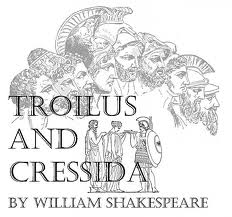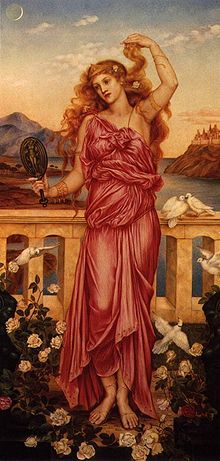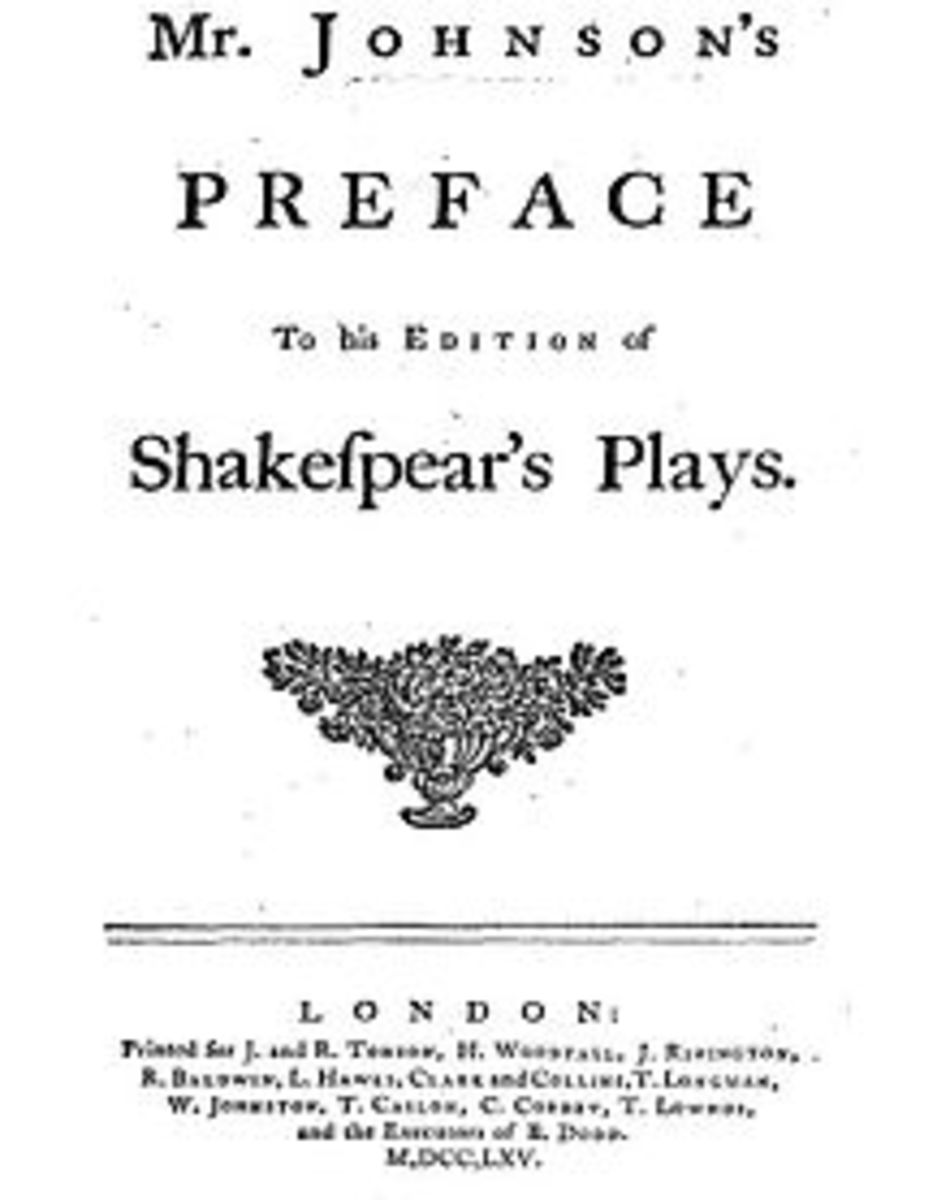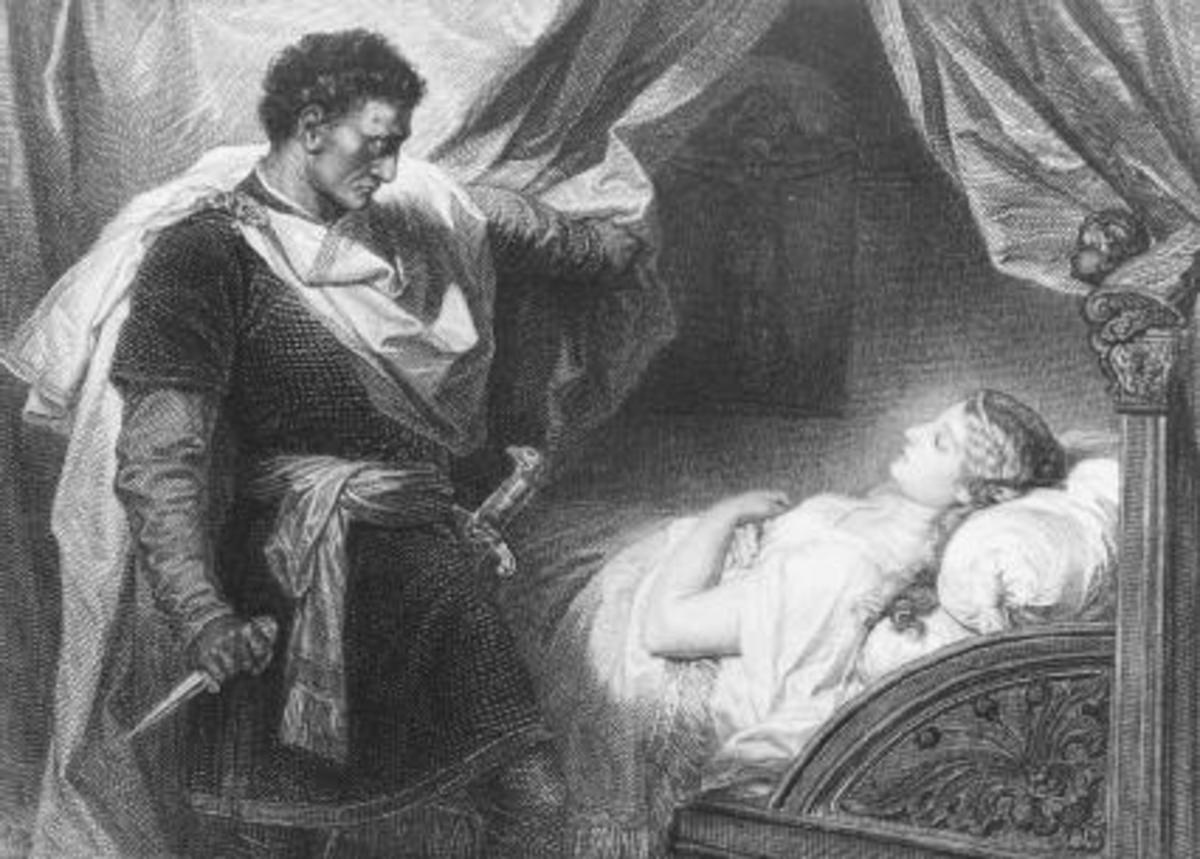- HubPages»
- Books, Literature, and Writing»
- Literature»
- English Literature
Complex Relationships in Shakespeare's Plays

The “Fair” Personal Affairs in Love and War
“Love is a battlefield,” the title of Pat Benatar’s famous single, in itself describes the many struggles with the concept of love and personal affairs present in Shakespeare’s plays. Between the characters of these plays there are promises made, demands placed, and a self-righteous feeling that what they are doing is right despite the surrounding conditions. Quoting Pat Benatar’s song “no one can tell us we’re wrong,” brings to light the circumstances under which Paris and Helen from Shakespeare’s Troilus and Cressida are operating under. Their relationship inevitably caused the Trojan War, however they are portrayed as detached and somewhat oblivious to the bloody war. The very question of whether Helen is “worth it” reverberates through the play, raising the question: “Is Paris’ affair with Helen, fair?” Achilles in Troilus and Cressida, keeps to his personal affairs, promises, and pride. However, he reenters the battlefield in the name of love for his slain “lover” Patroclus to make things “fair” once again. In Othello, Othello and Desdemona show their affection for each other despite their cultural and racial differences, portraying a fair relationship that has the potential to last. However, their relationship is tested repeatedly throughout the play due to personal vendettas that challenge Othello’s perceptions of his beloved Desdemona. Although the relationships in these plays are “fair” to the individuals involved, their philosophies regarding love creates a “smokescreen” that ultimately blinds them on the “battlefield of love.”
According to Linda Charnes’ essay, “What we take as the love story aspect of other stories is exactly what enables us to take these other stories, period,” Paris and Helen’s relationship and how it is portrayed in Troilus and Cressida is very profound (Charnes 1). It goes without saying that the cause of the Trojan War was the abduction of Helen, and the cuckolded Menelaus responds in a “chivalric” approach to take his wife back. In common love stories, chivalry lives on, however in Troilus and Cressida the “chivalry” that occurs in the play ventures into the realm of making things “fair” no matter the cost of blood and honor. In the universe of Troilus and Cressida, it can be argued that the people involved in the central relationships and affairs are ultimately reduced to being used as commodities. In Hector’s eyes regarding Helen “[Helen] is not worth what she doth cost the holding” (II.ii.51-2). The siege of Troy serves as a backdrop of the play, and the continuation of the war is questioned and critically analyzed. Thersites’ attitude about Helen and the War is “all the argument is a whore and a cuckold" (II.iii.75). Paris and Helen are ultimately oblivious to the horrors of the war as they go to bed at night to figuratively “kill each other,” as their countrymen literally kill each other to make things “fair.” Act 3 scene 1 wholly embodies Paris and Helen and their detachment from the War just outside their city gates:
“Pandarus: Fair be to you, my lord, and to all this fair company! fair desires, in all fair measure, fairly guide them! especially to you, fair queen! fair thoughts be your fair pillow!
Helen: Dear lord, you are full of fair words.
Pandarus: You speak your fair pleasure, sweet queen. Fair prince, here is good broken music.
Paris: You have broke it, cousin: and, by my life, you shall make it whole again; you shall piece it out with a piece of your performance. Nell, he is full of harmony” (III.i.35-45)

Paris and Helen seem more concerned about their little music concert when Pandarus interrupts their sanctuary with real business, additionally he pokes fun at Helen at the same time. Pandarus’ repeating the word “fair” is profound in that it both describes how Cressida’s beauty is just as fair as hers, as well as a commentary on how “fair” the war is over such a woman as Helen. Another important aspect about this specific act and scene is how dull Helen is when Pandarus is toying with her stature and intellect right in front of Paris:
“Pandarus: Sweet queen, sweet queen! that's a sweet queen, i' faith.
Helen: And to make a sweet lady sad is a sour offence.
Pandarus: Nay, that shall not serve your turn; that shall not,
in truth, la. Nay, I care not for such words; no,
no. And, my lord, he desires you, that if the king
call for him at supper, you will make his excuse.
Helen: My Lord Pandarus,—
Pandarus: What says my sweet queen, my very very sweet queen?” (III.i.62-69)
While it is true that Helen is beautiful, she seems to be devoid of any other qualities. Paris and Helen are ultimately blind to the horrific war that is happening in the name of Helen. Their affair breeds more hostility and more bloodshed. It is their personal motives, sheltered lifestyle, and lust for one another that cause the war to never end at a just and fair conclusion.
Achilles, the Greek equivalent to Troy’s Hector, opts to stay out of Menelaus’ war for a “fair” reason, “Achilles: Of this my privacy I have strong reasons” (III.iii.68). According to Charnes, “A pervasive programme of public desire (Helen and the War) underwrites what I have called myths of private desire” (Charnes 5). I have interpreted this, in Achilles’ case, as his preference of keeping his private affair with the Trojan princess Polyxena honorable instead of seeking honor in the very public Trojan War:
“Achilles: My sweet Patroclus, I am thwarted quite
From my great purpose in to-morrow's battle.
Here is a letter from Queen Hecuba,
A token from her daughter, my fair love,
Both taxing me and gaging me to keep
An oath that I have sworn. I will not break it:
Fall Greeks; fail fame; honour or go or stay;
My major vow lies here, this I'll obey.
Come, come, Thersites, help to trim my tent:
This night in banqueting must all be spent.
Away, Patroclus!” (V.i.67-72)
Achilles is arrogant and believes that his past deeds ring true without him having to continue fulfilling new deeds. Although Achilles is a vital and important asset for the Greek forces, he would rather stay true and fair to his waiting maiden, who also happens to be his enemy’s kin. The Trojan princess Polyxena is his counterpart in his private affair, while Patroclus is his counterpart in his public affair in regards to the war. Both of these worlds collide when Patroclus is slain in battle by Hector, therefore bringing the public battle to Achilles’ private sphere. Achille’s personal affairs are threatened; therefore he goes in blindly into battle with a blood lust that can only be quenched by destroying Hector in dishonorable way. Achilles arranges for his Myrmidions to attack the unarmed Hector
“Hector: I am unarm'd; forego this vantage, Greek” (V.viii.19). Additionally Achilles further unleashes his rage on Hector’s body by tying it to his chariot, “Come, tie his body to my horse's tail; Along the field I will the Trojan trail” (V.viii.34). Achilles, who attempts to keep his all of his affairs “fair” in his eyes, inevitably causes him to feel self-righteous in his dishonorable actions to make things “right” once more when his personal affairs are threatened. His love serves as a smokescreen that makes him forget about his oath with the Trojan princess Polyxena. The pressures of the war, the demands placed on him, and the expectations that he is supposed to live up to threaten his “ideal” way of living. Achilles philosophy of “love” was his downfall and caused him to act in a dishonorable way in his attempt to seek vengeance for his beloved Patroclus.
Is Iago justified in messing with Othello and Desdemona's relationship?
Desdemona’s relationship with the foreign “Other” Othello may have had a happy ending; however the social pressure, political expectations, and personal vendettas against him had eliminated that ideal end. Othello is held in high esteem in Venetian society, despite his foreign origins, gradually degrades into the stereotypes that the same society eventually places on him. This happens mainly due to the bitter and manipulative Iago who seeks retribution on Othello. Othello and Desdemona is a couple that arguably would have had a fair chance to be together if it weren’t for Iago meddling in their personal affairs. Desdemona was intrigued by Othello’s adventures and battles:
“Othello: Would Desdemona seriously incline.
But still the house affairs would draw her hence,
Which ever as she could with haste dispatch,
She’d come again, and with a greedy ear
Devour up my discourse, which I, observing,
Took once a pliant hour and found good means
To draw from her a prayer of earnest heart” (I.iii.147-154).
Othello and Desdemona’s relationship was not solely based on lust, but of a mutual companionship. Othello’s perceptions of Desdemona were noble and he legitimately loved her as an emotional partner and not only as a sexual partner:
"Vouch with me, heaven, I therefor beg it not/To please the palate of my
appetite,/Nor to comply with heat-the young affects/In me defunct-and proper
satisfaction,/But to be free and bounteous to her mind" (I.iii262-66).
This “fair” union fails at the hands of Iago who twists Othello’s perceptions of Desdemona through a series of miscommunications and ill assumptions. Iago’s personal issues with Othello, in addition to his supposed homosexual attraction to Othello, causes him to “play dirty” to make things “fair” for his shortcomings. Iago manipulates Othello, Cassio, and his henchman Roderigo, all because Iago was passed over for a promotion. Ultimately, Othello becomes “blinded” with hatred and scorn for Desdemona because of all of the things Iago has told and shown him. Othello’s once composed demeanor degrades into the complete opposite. Othello and Desdemona tried to live privately and peacefully much like Paris and Helen, however the public world interrupted repeatedly. Othello tried to keep his private world and his honor for Desdemona to himself, but Iago’s manipulative methods caused those worlds to collide in a chaotic fashion. Othello’s philosophy on his love for Desdemona was corrupted, and the only way he could make things right and fair once again was to murder her. In the end, Othello takes his own life once he realized his mistakes.
On the battlefield of love, it is difficult to play fair with the constant ebb and flow of private and public issues intruding on the relationship dynamic. As for my final word on Shakespeare as a poet, I personally believe that he has a profound knowledge and insight to human nature. He has a distinct ability to encapsulate the many faces of love and hate in his plays. I’ve observed a great balance of love and hate in his plays, because it is impossible to have an abundance of love without a certain amount of hate i.e. Romeo and Juliet and Othello. Through reading each of Shakespeare's plays, the song “Love is a Battlefield” kept on playing in my head as I noticed how hard it was for people to be in love in the plays. In my opinion some of the lyrics in that song really do reflect what some of the characters in the plays were probably dealing with and feeling. I believe Shakespeare was a poet of “love” but not “true love,” he knows how to create scenes and situations where love is definitely a possibility. However, Shakespeare ends up introducing more situations that challenge a seemingly “perfect relationship.” I believe it is these challenges that we the audience see and unfold, is what makes the concept of “love” so intense and thought provoking. If Shakespeare made a play that was based solely on love and had no large conflict in it, then it probably would not have made the same impact as the incredibly layered relationships in Troilus and Cressida and Othello.
See Linda Charnes, "What's Love Got to Do With It? Reading the Liberal Humanist Romance in Antony and Cleopatra," in Shirley Nelson Garner and Madelon Sprengnether, eds., Shakespearean Tragedy and Gender (Bloomington: Indiana University Press, 1996), pp. 268-86.
For Professor Courtney Lehmann's Shakespeare in Love course at the University of the Pacific 06/2012







